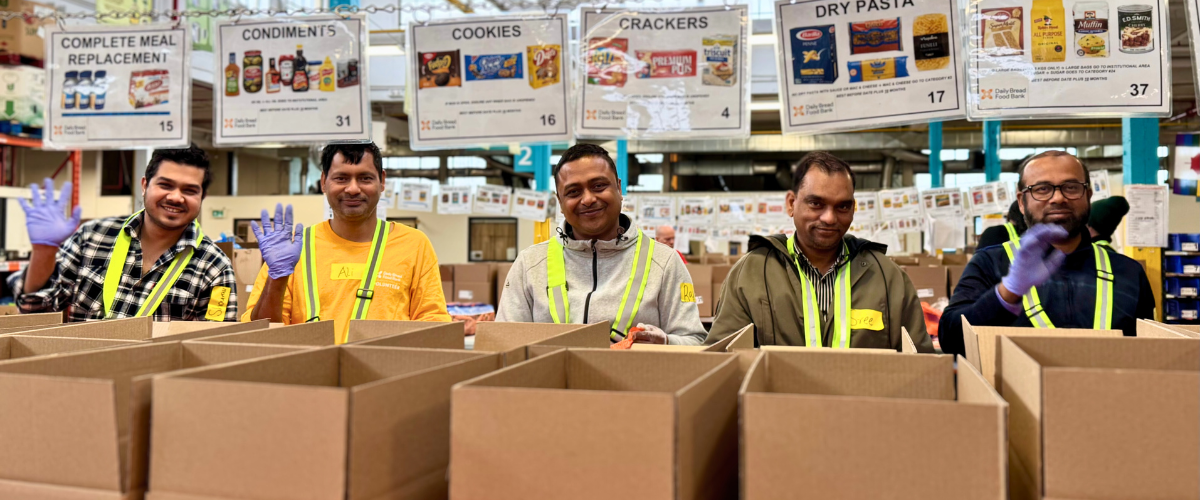
Last September, we saw an influx of new volunteers who were eager to help but whose limited English language skills made sorting food or picking warehouse orders challenging.
Here was the perfect opportunity to put two of our core values — “inclusive” and “creative” — to the test. These volunteers wanted to be a part of the fight to end hunger. How could we make that happen?
The Volunteer Services and Operations teams realized that some volunteer tasks could be completed safely regardless of language ability, like packing carrots or bagging granola. Specific shifts were created for these volunteers, and they flourished in them, recruiting friends and family to help as well. A new volunteer community had formed, and as of March 31, this team of 101 volunteers had donated an incredible 5,026 hours to the Daily Bread mission.
“Five thousand hours is really significant — that’s like if I worked full time for two and a half years,” said Alison Gibbins, Volunteer Services Manager. “If we hadn’t had this group, we potentially wouldn’t have been able to process as much food [as we have].”
The language barrier made logistics difficult at first. Google Translate played a large role in the early registration process. But then the Volunteer Services team partnered with a Bengali-speaking volunteer to host a special orientation session, as many of the volunteers were refugees from Bangladesh. And from there, the veterans have helped to train the rookies.
“Now the community is taking care of the training,” Alison said. “Leaders have emerged.”
One such leader is Abdul Ali, who has been volunteering since November. He was a small business owner in Bangladesh and used to volunteer for food security causes back home as well. With time and ESL classes, his English has improved, and he’s moved on to periodically volunteer for more traditional food sorting or warehouse shifts, with an eye to try out the kitchen next. He previously volunteered in a Bengali-speaking organization in the east end but loves that he gets more cultural and language exposure here. “I appreciate the social aspect, too,” he said through a translator. “Everyone here is so friendly and kind.”
Some newcomer volunteers view this volunteer work as a way to honour the country that they now call home. “I’ve received so much from the Canadian government,” said Rajib Das through a translator. “It’s important to me to give back.”
Rajib was a government employee in Bangladesh before moving here in October. Given his past career, he hopes to secure an administrative position in Canada soon and said that having Daily Bread volunteer experience on his resume has given him a leg up with potential employers. Daily Bread can also assist these volunteers by providing letters stating how many hours they’ve volunteered for immigration or refugee hearings.
We’re presenting a seminar on how to implement this program at other food banks at our upcoming Member Agency Conference in May. Inclusivity is a core part of who we are at Daily Bread. We want anyone who is passionate about fighting food insecurity to be able to join the cause.
“It’s important that everyone feels welcome here,” said Alison. “That everyone feels welcome as a client, that everyone feels welcome as a volunteer. We really are a microcosm of Toronto, and I want to see everyone.”
Interested in volunteering at Daily Bread? Learn more on our website or sign up for an online information session on Volunteer Hub.